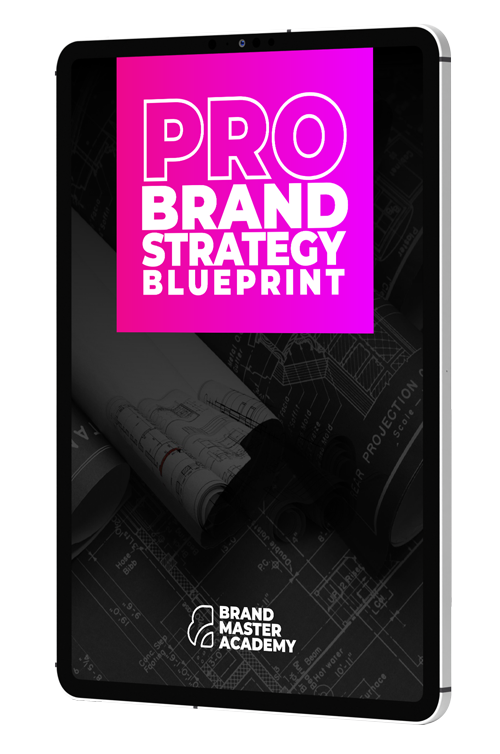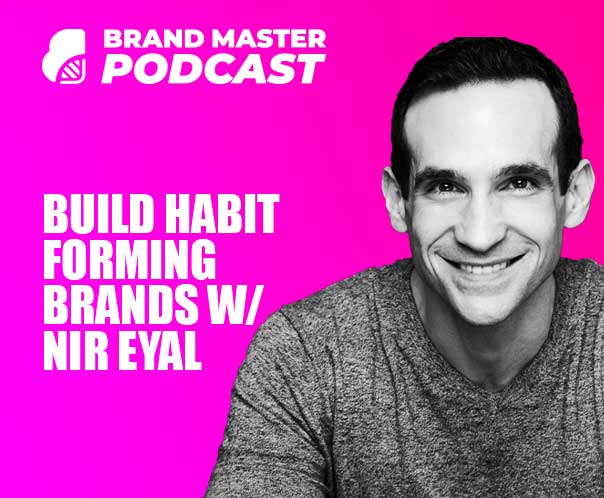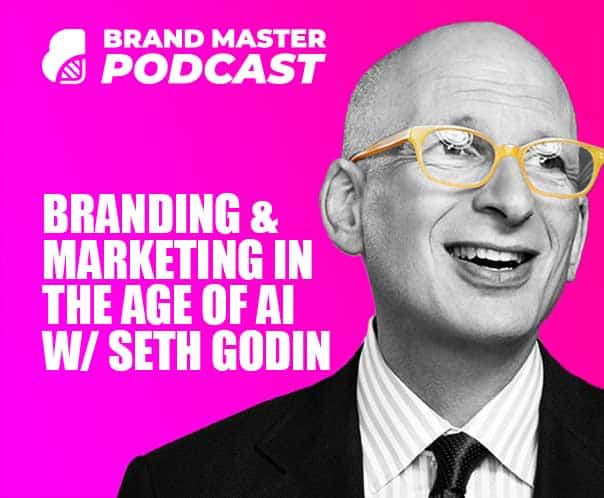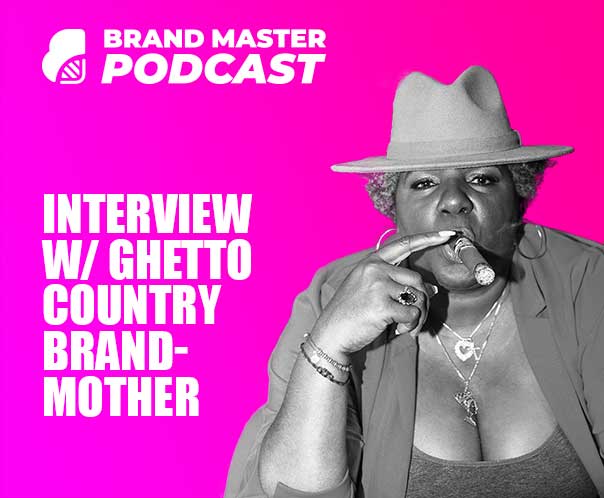The most loved brands in the world are not successful because of luck.
They all have a solid customer base who are loyal to the brand and come back time and again.
But how did these brands get there?
Well, the reality is, a successful brand has many moving parts that all need coordination and management.
In other words, behind every successful brand is a brand manager pulling the strings and navigating that brand to success.
In this article, you’ll learn what brand managers do and how you can become one to manage brands to success.
What Does A Brand Manager Do?

A brand manager is responsible for the overall image of a company, product or person (i.e. a brand).
Their goal is to ensure that every touchpoint of a company conveys the right message to its customers so that they will want to come back for more so the brand ultimately grows.
An important part of the role is to guide marketing efforts by managing all communication, channels, assets, and products to name a few.

A brand manager is also responsible for brand and customer experience management which includes analyzing customer feedback on products and services, identifying opportunities where customer expectations could not have been met in order to enhance future interactions with customers.
Brand managers are also involved in understanding market trends so that they can make decisions about branding strategies based on what consumers want now or will want tomorrow.
Tasks of a Brand Manager

A brand manager wears many hats and has both broad and deep knowledge of strategy and tactics across branding and marketing.
SEO experts have deep execution knowledge on backlink strategies and content gap analysis.
Paid ads experts will have deep execution knowledge on platform mechanics such as hyper-targeting and audience segmentation.
User Experience experts have deep execution knowledge on user flow and conversion optimization.
While the brand manager doesn’t need to execute any of these tasks, they do make the strategic decisions to guide the execution
They must therefore have a deep understanding of the tactics they’re leveraging.
Here are some typical duties you’ll see listed in brand manager job descriptions.
Manage public relations, including building relationships with media outlets and influencers
Maintain a consistent company image through various marketing initiatives and channels
Manage branding costs: implementing a budget and pricing up advertising campaigns
Oversee social media accounts, ensuring brand consistency
Complete research into industry trends and public perception
Communicate with other company executives, including product development, product marketing, and other marketing teams
Ensure the whole company understands the importance of brand awareness campaigns
Core Categories Of A Brand Manager

A brand manager needs to rely on communication skills and project management skills to navigate their daily tasks.
Everybody needs to be on the same page to ensure the brand promise to the customer shines through in everything the company does.
Therefore, as a brand manager, you must trust team members when delegating different tasks.
In general, we can split the role’s tasks into three groupings:
Strategy: A brand manager is a strategist. You make a plan for marketing channels, including customer service, public relations, and internal communications. The plan’s purpose is to grow the brand and then look to carry out the project with the help of other teams.
Management: You bring about smooth cross-departmental collaboration right through the company to bring the broader vision to life. This might involve meetings with a content creation team, sitting down with the social media manager to discuss the latest analytics, or going through a product’s branding with the product manager, and then making sure to communicate any information to those who need to know.
Brand Development: This includes refining any brand assets to align with strategies designed to fulfill business objectives.
Advantages Of Leveraging A Brand Manager?

So, we’ve explained what a brand manager does, but what’s the actual end result?
How can brand managers transform businesses?
PRO Brand Strategy BluePrint
Build Brands Like A Pro Brand Strategist

Better Conversions

Brand managers know that businesses can’t rely on entirely on a sales team to get results.
Building a brand is about building the relationship between the market and the business, not just to the company’s product or service or a particular deal that’s offered at a specific time.
Brand equity (or the willingness of the market to choose your brand over your competitors), is not something that is bought but something that is earned.
Like any good, solid investment, you’re building a secure future for the business by laying the groundwork for a meaningful long-term brand.
Explore Brand Strategy
Programs & Tools
Consistent Messaging is Key

Nobody likes mixed messages in life, right?
A brand manager will develop brand guidelines and ensure these are consistent through everything the company does.
This elevates all company activity.
Keeping your messaging, imagery, and visuals aligned ensures all your communications reinforce each other. It also supports your brand identity, both inside and outside the business.
It also supports your brand identity, both inside and outside the business.
Clear brand guidelines will elevate your internal emails, advertising campaigns, website, and PR releases, and all of these need to play from the same tune sheet for an effective brand!
Knowing the Target Audience and Competitors

Give the people what they want, and do it better or different, from your competitors.
It’s not a difficult concept to follow, though few do it well.
The key is truly understanding your audiences, their goals, challenges, fears, desires and emotions.
It’s also about understanding the groups serving their needs in the market (i.e., your competitors) and then devising a plan to distance yourself from them with an offering that gives them something unique.
Brand managers that understand these fundamental principles and allow them to guide their daily decisions will be much better placed to succeed in their role.
The Brand Manager Definition

Because the brand manager’s role is so widely broad and diverse, it can be defined in many different ways. But as branding is about simplifying, let’s lean that way.
A brand manager is a person who both strategizes and manages a brand with the intention of growing the brand, it’s reputation and equity among other brand assets.
What Is A Brand Manager’s Job Description?

The brand manager is an important role within any business big or small.
When it comes to all things branding, the buck stops with them.
They’re responsible for ensuring that the brand’s overall image resonates with its target market so they feel a connection to the brand but this communication is only part of their role.
To develop the right strategy, they need to have a keen eye on the market to understand
Trends
Competitor Activities
Customers Wants/Needs
What Does A Brand Manager Do Day-To-Day? (Brand Manager Activities)

The brand manager role is extremely broad.
Their overarching goal is to grow the brand by increasing revenue and market share, though they use many tools and tactics to do so.
From analyzing market trends and competitor activities to discussing marketing execution plans with the marketing manager, the brand manager’s activities can take them in many different directions.
Typically, a brand manager will work closely with a handful of marketing specialists whose role may be to plan, manage or execute the individual marketing and communication activities of the brand.

A brand manager’s day-to-day activities can be broken down into three categories:
* Strategy & Execution – Planning and executing the critical marketing elements that drive a company to success, such as customer service, public relations (PR) or internal communications.
* Marketing Management – Ensuring effective cross-departmental collaboration on promotions, events and other strategic initiatives with inbound efforts focused primarily on content creation and social media management. Here you’ll find the bulk of your daily tasks including analytics reporting, identifying trends for future strategies and assessing new opportunities based on data insights from competitors’ customers.
* Brand Development – Defining business objectives by analyzing market needs; mapping out strategies for each area of focus required to achieve these objectives and refining branding assets to ensure overall strategy alignment.
Brand Manager vs Marketing Manager

So how does the brand manager differ from the marketing manager?
Well, the reality is, the brand manager is a more senior role than the marketing manager.
In large organizations, the marketing manager reports to the brand manager though in most small businesses the brand manager and marketing managers are one and the same.
The brand manager is responsible for brand growth, therefore they are responsible for the marketing strategy and execution of it.
In a small business, the brand manager would likely take ownership of all of the marketing manager’s responsibilities though, in a larger organization, this role would more likely be split between two or more people.
What Are The Required Brand Manager Qualifications?

Traditionally, brand managers were only found in larger organizations.
As there are very few direct educational routes to brand management, most brand managers would climb into the role from marketing positions where they usually held a relevant marketing degree.
More recently, smaller brands are being developed by entrepreneurs who take control of the company and the brand who are often self-educated on branding and marketing.
Unlike previous generations, there are countless avenues that can lead to a brand manager role simply because there are so many skillsets required to build a brand.
From design to copywriting, social media management to visual storytelling, the roads leading to brand management are many.
What Skills Do Brand Managers Need?

A brand manager needs to have certain qualities in order to achieve the things necessary to boost and maintain a brand. Here are some of the most important skills a brand manager should bring to a team.
A brand manager needs certain skills to be able to manage a brand effectively. Here are the most critical skills required for successful brand management.
Advanced Communication

As a brand manager, your communication skills are one of the most important aspects of your job.
In order to direct the brand, you need clarity of message not just externally, but internally amongst brand management staff.
To make sure that you have strong communication skills it is vital to foster strong relationships throughout your company and speak with both employees in other departments as well as establish personal connections with coworkers.
Outside The Box Thinking

Creativity is a critical aspect for any brand so part of the brand manager’s job is to not just foster that environment but to lead by example.
While it is important to establish objectives and guidelines for these creatives, too much structure can be detrimental.
Effective brand managers understand this challenge and implement strategies that encourage creativity instead of restricting it so the team remains innovative.
Savvy Market Analysis

Brand managers need to make big decisions.
Both qualitative and quantitative research provides the information needed to make decisions, though this data must be interpreted and decisions must be made based on the information at hand.
A combination of data analysis, experience and intuition are used to make critical management decisions to guide the brand to its objectives.
Adaptability And Flexibility

Markets are not static. They’re constantly moving and shifting because people and what they want change over time.
Effective brand management is not a set-and-forget approach and the manager needs to have the capability to pivot if the market conditions change.
Whether through identity design, product design messaging or experience, the adaptability of the brand plays a major role in long-term survival and success.
What Are The Brand Manager’s Responsibilities?

As mentioned earlier, the brand manager’s role is both broad and diverse. To match the wide range of skill sets required are an even wider range of responsibilities.
Target Audience & Market Segments

Buyer personas or audience avatars are created early in the brand strategy development process, but they also continue to grow and form as the brand grows.
By analyzing customer interactions and feedback, the brand management team can learn more about customers and give them what they need.
Positioning Strategy & Competitive Advantage

The position of the brand is also defined as part of the brand strategy process and achieving differentiation in this area (i.e., why customers would choose them over their competitors) is at the cornerstone of that strategy.
The brand manager needs to stay up-to-date with what the company’s competitors are doing in order to protect the market position and its competitive advantage.
Brand Personality & Tone Of Voice

The brand manager must have an almost obsessive curiosity about who the customer is and how to resonate with them.
This knowledge and understanding allows them to refine the brand personality and tone of voice to reflect the personality of customers and the attributes they’re attracted to.
Old Spice is an excellent example of this, charging their brand personality and positioning based on a new target market after 75 years.
Brand Messaging & Storytelling

Consistent messaging is a fundamental branding principle that has never been as important as it is today.
With so many touchpoints across the brand experience, inconsistent communication that delivers one message on one platform and an entirely different one on another can cause confusion leading to distrust.
The message and the stories communicated by the brand require consistency at the core.
With so many touchpoints and often many different brand representatives and professionals involved in communicating the brand, it’s imperative that the brand manager keep centralized control of communication to ensure consistency.
Marketing Strategy & Execution

A brand manager may have many experts at their disposal including marketing strategists and managers.
Either way, the buck stops with the brand manager when it comes to marketing execution.
If a marketing campaign is successful the plaudits flow up to the top from the creative team right up to the brand manager.
Likewise, if a campaign falls flat or the brand loses equity or market share because of a miscalibrated execution, the brand manager is in the firing line.
How Do You Become A Brand Manager?

So, now you have all the exhaustive pieces of this brand manager puzzle, how do you go about becoming a brand manager?
Step 1: Acquire Relevant Branding / Marketing Skills

As I covered earlier, there are many routes that can lead to a brand manager position because there are so many skill sets involved in building strategic brands.
The first step is to acquire the skills needed to get yourself onto one of these side roads that lead to the brand management highway.
Traditional education routes are everywhere which will provide you with the fundamental grounding in the wider marketing discipline and your specific discipline of choice.
Existing skills you have may be applicable which is a plus because employers prefer to hire people who can hit the ground running.
Step 2: Acquire Relevant Experience

Once you have the skills you need it’s all about applying your knowledge. It’s important that you have that knowledge grounding but academics will only get you so far.
Contributing to the building, developing or marketing of a brand will give you the exposure and experience you need.
You can do this by finding a junior position within an agency or an in-house role or by finding smaller businesses you can help directly with their branding and marketing efforts.
The more brands you have a hand in building and the more challenges you face, the more experience you’ll gain and confidence you’ll build.
Step 3: Develop A Thirst For Success

Once you have your foundational skills and experience, the name of the game becomes about desire, determination and application.
It’s great that you have your baseline knowledge and experience, but if you want to make it in the game of brand management, you’ll need to show tenacity to catapult yourself forward.
You’ll need to be hungry for success and willing to put in the long hours it will take.
This means you not only have a love of what you do but are also passionate about making your personal brand one that stands out from all the rest.
Chances are, you’ll have an acute understanding of a narrow field of brand building whether design, social media management, copywriting etc.
But to manage a brand, you need to have the full picture and be able to see how every facet of a business relates with the others.
This requires an insatiable curiosity about your field of branding. To find out every question a brand manager needs to answer and go out in search of those answers.
Over To You
Climbing the heights to brand management is not a walk in the park, which is why effective brand managers are in short supply. But the rewards are there if you are willing to put in the hard work.
The buck stops at the top and this is where the big branding decisions are made which can be the difference between obscurity and iconic status.
On-Demand Digital Program
Brand Master Secrets
Make the transition from hired-gun to highly valued brand strategist in less than 30 days. The systems, frameworks and tools inside this comprehensive program are all you need to level up.








